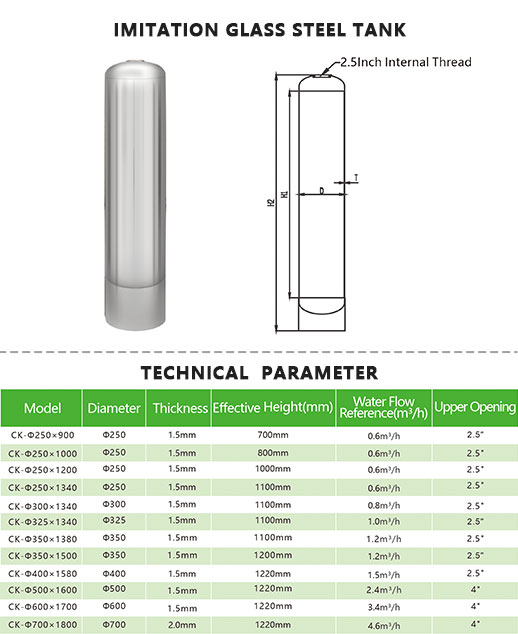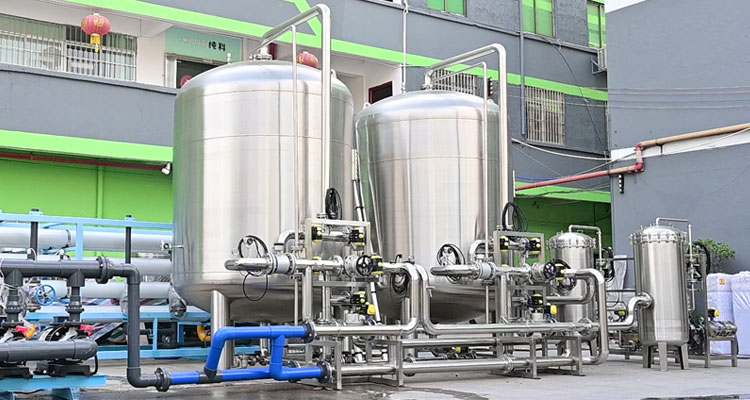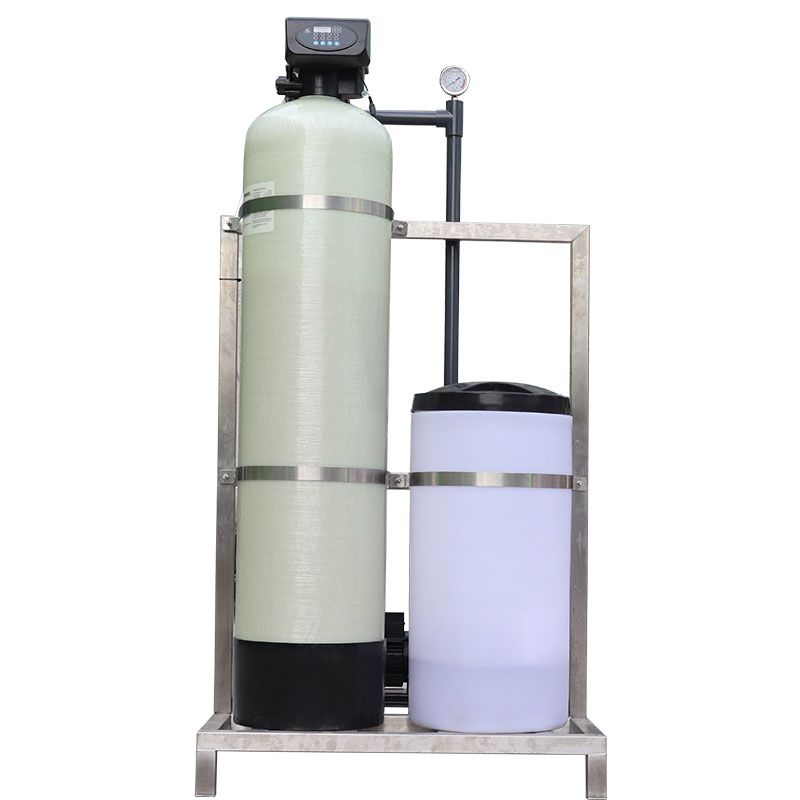Was kostet ein guter Wasserenthärter? Brauche ich einen?
A water softener converts hard water into soft water, reducing the amount of minerals such as calcium and magnesium in the water. Although hard water does not pose a direct health threat, long-term use can cause scale buildup in pipes and appliances, affecting their lifespan and efficiency, and can even dry out and roughen the skin and hair. As a result, water softeners are becoming increasingly popular among home users. However, when many people consider buying a water softener, they often question its price, effectiveness, and whether they really need it.
This article will take a closer look at the price range of a good water softener, whether it is worth buying, and whether you really need one.

How much does a good water softener cost?
The price of a water softener varies depending on the brand, model, processing capacity, and additional features. Generally speaking, the price of a water softener can range from a few hundred dollars to several thousand dollars. Here are the main factors that affect the price of a water softener:
Processing capacity
Processing capacity refers to the amount of water that a water softener can process. For small home users, a water softener that can treat 10-20 liters of water per minute is sufficient, while a larger home or commercial location may require a larger capacity unit. The larger the capacity, the higher the price of the water softener. For example, a water softener with a larger capacity may cost up to $3,000 or more.
System Type
The type of system used by the water softener is also an important factor affecting the price. Common types of water softeners include:
● Salt-based water softener: This is the most common type of water softener and the price is usually between $500 and $1,500. This type of water softener achieves the softening effect by replacing calcium and magnesium ions in the water with sodium ions.
● Salt-free water softener: This type of water softener does not use salt, but instead uses chemical or physical methods to reduce the formation of hard minerals in the water. Its price is usually between $1,000 and $3,000, depending on the complexity of the system.
● Magnetic water softener: It changes the physical properties of minerals in the water through a magnetic field to prevent them from forming scale in the pipes. The price is usually low, generally between $300 and $1,000, but the effect and usage scenarios may be limited.
Brand and quality
Brand is another important factor that affects the price of a water softener. Some well-known brands of water softeners are usually more expensive because of their good reputation, reliable quality and excellent after-sales service. A water softener with a good brand may be 20% to 50% more expensive than the same type of products from ordinary brands.
Installation and maintenance costs
In addition to the price of the water softener itself, installation and maintenance costs are also factors to consider. Generally speaking, the installation cost of a water softener ranges from $200 to $500, depending on the complexity and location of the installation. In addition, consumables such as the filter element and salt block of the water softener need to be replaced regularly, and the annual maintenance cost may range from $100 to $300.

Is a water softener worth buying?
The decision to buy a water softener should be based on the benefits it brings to you and the actual needs. Here are some key factors to determine whether a water softener is worth buying:
Water quality issues
The first factor to determine whether you need a water softener is the water quality in your home. Characteristics of hard water generally include the following:
● Scale buildup: The calcium and magnesium ions in hard water easily form scale in pipes, water heaters, and appliances, resulting in reduced efficiency and shortened lifespan.
● Dry skin: Hard water can make the skin and hair feel dry and may even cause skin problems such as itching or eczema.
● Incomplete washing of clothes: Hard water prevents soap and detergent from completely dissolving during washing, resulting in incomplete washing of clothes, hardening, and losing their luster.
If your home water quality test shows high hardness (usually over 120 mg/L), then installing a water softener may improve these problems, thereby extending the life of your appliances, reducing maintenance costs, and improving your quality of life.
Financial costs
While a water softener can bring significant improvements to your life, its financial costs also need to be considered. The initial investment to purchase and install a water softener can be between $1,000 and $3,000, plus annual maintenance costs. Before deciding whether to purchase, you need to evaluate whether these costs are within your budget and whether they can be offset by reducing scale-related maintenance costs and increasing the lifespan of your appliances.
Environmental and health considerations
Traditional salt-based water softeners reduce water hardness by discharging wastewater containing sodium ions, which may have an impact on the environment in some areas. In addition, the sodium contained in softened water may not be the best choice for some people with high blood pressure or other health problems. In this case, a salt-free water softener or other alternatives may be more suitable for you.
Usage habits and needs
The effectiveness of a water softener is closely related to your family's water usage habits. If you often use home appliances such as water heaters, washing machines, dishwashers, or your family uses a lot of water, then the investment in a water softener may pay off faster. In addition, if you pay special attention to skin and hair care, or have sensitive skin members in your family, a water softener can also provide additional health protection.

Do I need a water softener?
When deciding whether to buy a water softener, you can consider the following questions:
1. How is your water quality?
First, you need to understand the water quality in your home. Many local governments or water companies will provide water quality reports, and you can also purchase a hardness test kit to test it yourself. If your water quality report shows that the water hardness is high, then a water softener may be a reasonable investment.
2. Is the scale problem in your home serious?
If you find that scale often accumulates on pipes, faucets, water heaters and other appliances in your home, or problems such as reduced water flow and reduced heating efficiency frequently occur, a water softener can help you solve these problems.
3. Have you noticed any health problems with your skin and hair?
Hard water can cause dry skin and hair. If you or your family often encounter these problems, especially tight skin or rough hair after bathing, then a water softener may be a suitable choice.
4. What is your budget?
Purchasing and installing a water softener requires a certain budget. If you think these costs are within your affordability and can be used for a long time, a water softener may be a worthwhile investment.
5. Do you pay attention to environmental protection and health?
If you are highly concerned about environmental issues or have special health needs, you can choose a more environmentally friendly and health-friendly type of water softener, such as a salt-free water softener.






